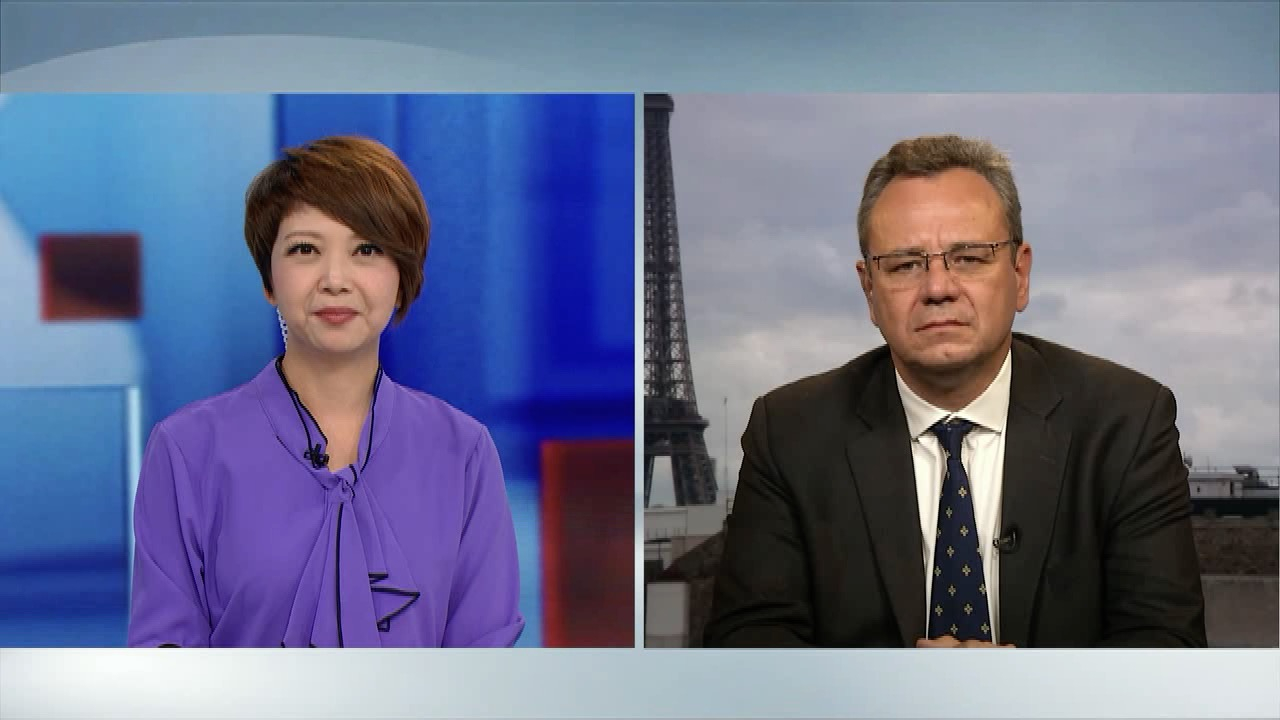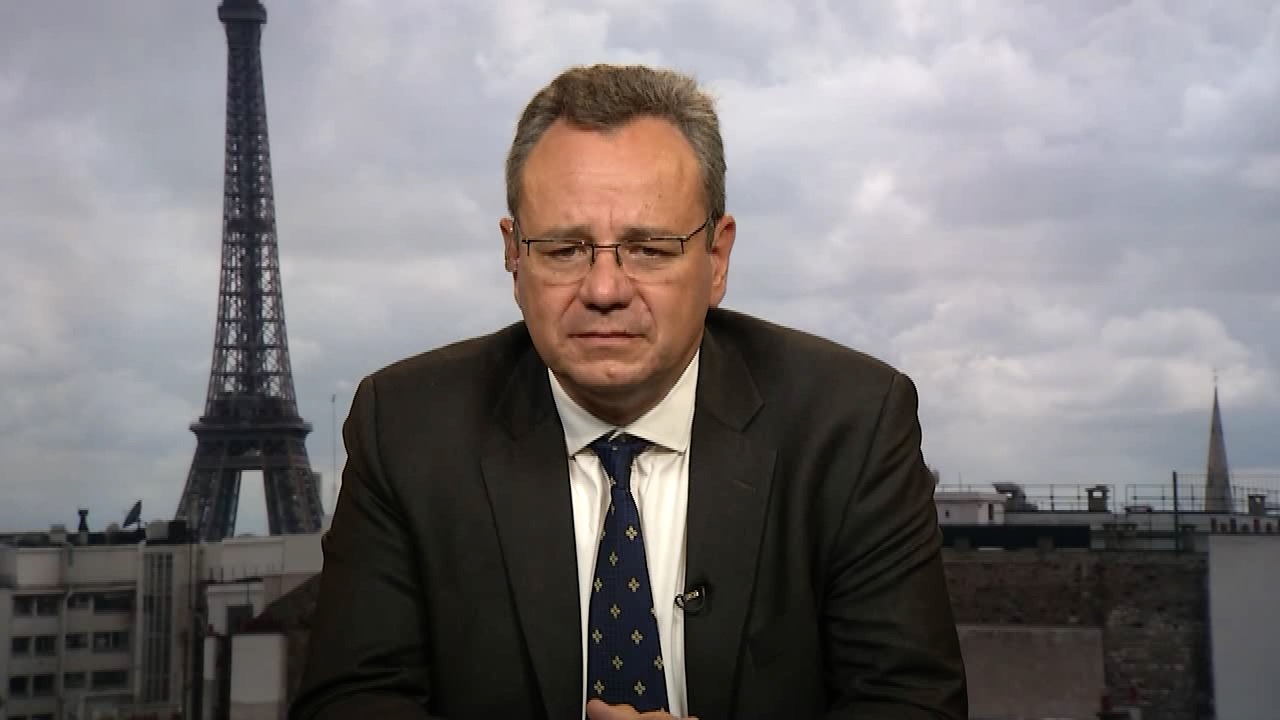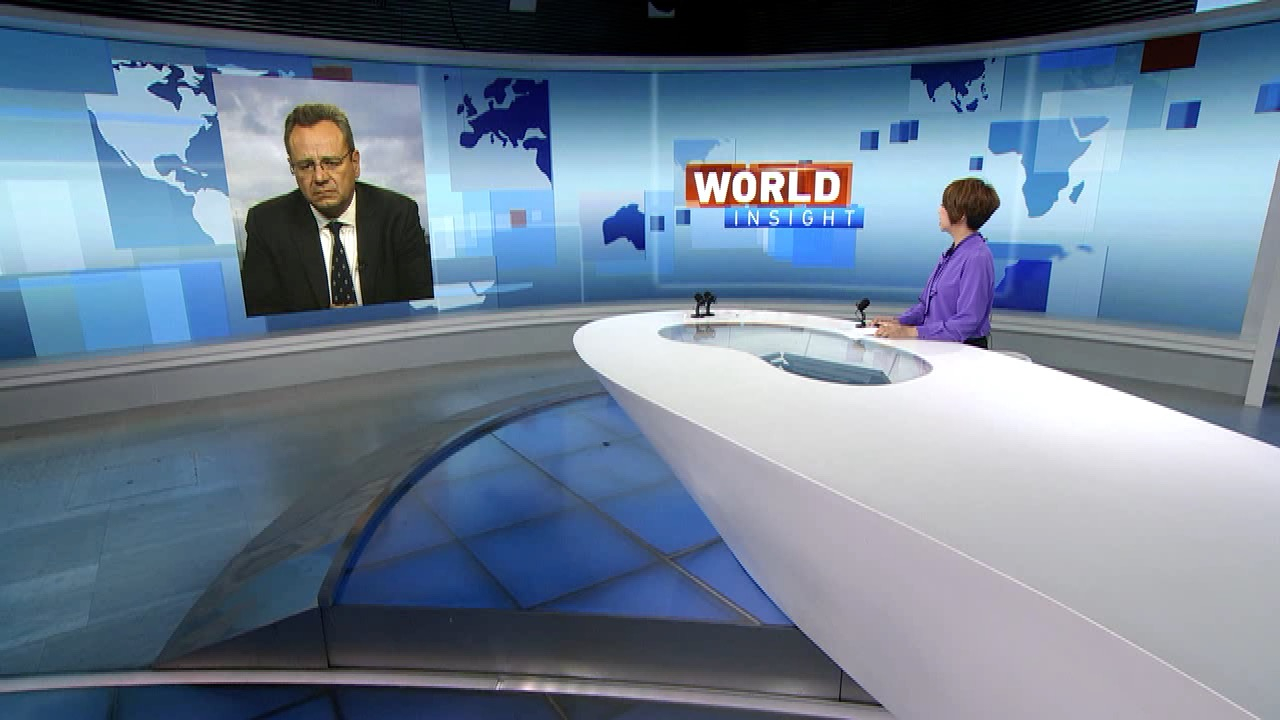
Biz Analysis
11:26, 31-May-2019
Former Alstom executive warns Huawei of U.S. using 'law as economic weapon'
Updated
13:54, 31-May-2019
CGTN
00:58

Frederic Pierucci, a former executive of French company Alstom, has warned Chinese companies of the U.S. bending the rules to help its own firms. During an interview with CGTN's Tian Wei on World Insight, the Frenchman said Washington "uses laws as an economic weapon," arguing that this has become clearer during the Trump administration.
His personal experience with the U.S.' long-arm jurisdiction and the subsequent battle with the Department of Justice (DOJ) have culminated in a book "The American Trap," released earlier this year.
Pierucci was arrested by the FBI at a New York Airport in 2013 on charge of bribery as part of an investigation into a decade-old corruption case in Indonesia. He was accused of violating America's Foreign Corrupt Practices Act (1977), which allows the U.S. enforces to pursue anti-corruption investigations into non-U.S. companies worldwide, even if the company only had subsidiary connections in the United States.
His arrest ran parallel to the largest business acquisition by the American General Electric (GE) of its French rival Alstom's energy business. In his book, Pierucci argued that the sale was a result of the legal pressure on the probe into Alstom's executives, and charged that behind the DOJ pursuit of his case was General Electric's pursuit of Alstom.
01:40

His woes are believed to be a precedent to the ongoing troubles Chinese tech giant Huawei is facing in the United States.
Similarities between Huawei and Alstom
"There's a similarity to the case. In order to put pressure on the company, they (DOJ) indict someone close to the company, which is what happened to me… In Huawei side, there's the official," Pierucci told CGTN.
Huawei CFO Meng Wanzhou was arrested late last year in Vancouver at the request of Washington for allegedly violating U.S. sanctions on Iran, in what has been seen as an example of the extraterritorial reach of the U.S. law. Earlier this month, U.S. authorities blacklisted Huawei and its affiliates, barring U.S. companies from selling them their technology.
Many observers have pointed out that the U.S. campaign against Huawei, which is ready to roll out its 5G technology, is to gain political leverage – and Trump's recent acknowledgment that Huawei can be used as part of a potential U.S.-China trade deal proved such suspicions.
What is the U.S. doing?
Pierucci said the U.S. government is using the law to beat competitors, as was the case with BNP Paribas, Huawei and Alstom in order to weaken companies rivaling U.S. firms.
02:23

"They're using their laws to impose their will on the world. Laws are extraterritorial," Pierucci told CGTN.
He added that the U.S. can touch every company that makes transactions in U.S. dollars, so as to destabilize bigger companies and its rivals.
What should be done?
Pierucci said the U.S. is skilled in exercising shock power.
"They're taking advantage, controlling the Internet, using the technological advances," Pierucci said. "Basically, this started after the World War. They used these in spying on competitors. So, of course, they play well," he continued.
Pierucci said he is angered by the passivity towards the behavior of the U.S., especially in Europe where Washington fines foreign companies and people according to its own laws.
"Alstom is involved in power generation. Alstom built all the nuclear companies. Basically selling Alstom to GE, we have lost control of nuclear power plants. It's a problem because 75 percent of electricity in France is produced by nuclear power plants," Pierucci said.
"People understand now. After Alstom, the French enacted an anti-corruption law. Rather than waiting for the U.S. to do the job, we've got France doing it," Pierucci said.

SITEMAP
Copyright © 2018 CGTN. Beijing ICP prepared NO.16065310-3
Copyright © 2018 CGTN. Beijing ICP prepared NO.16065310-3